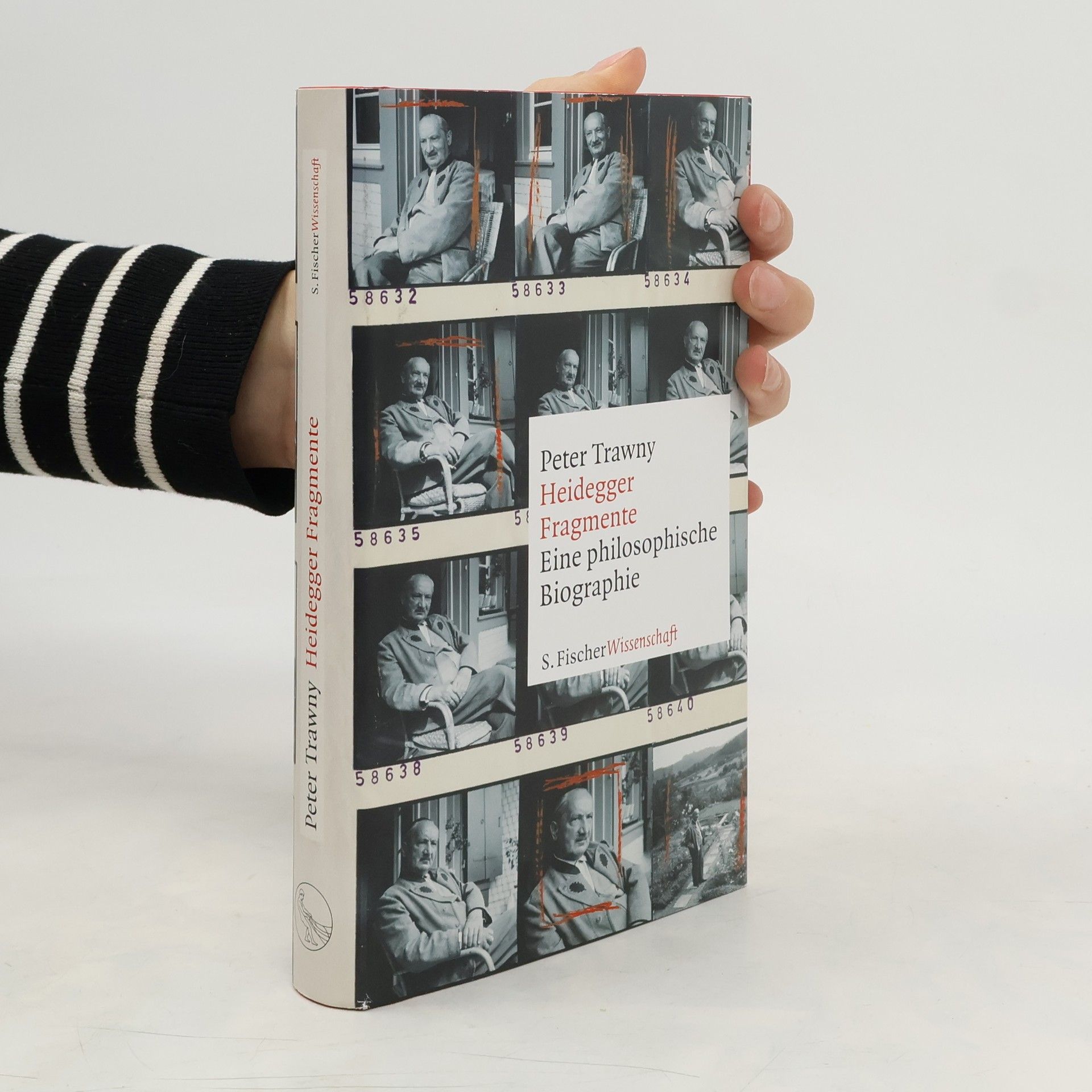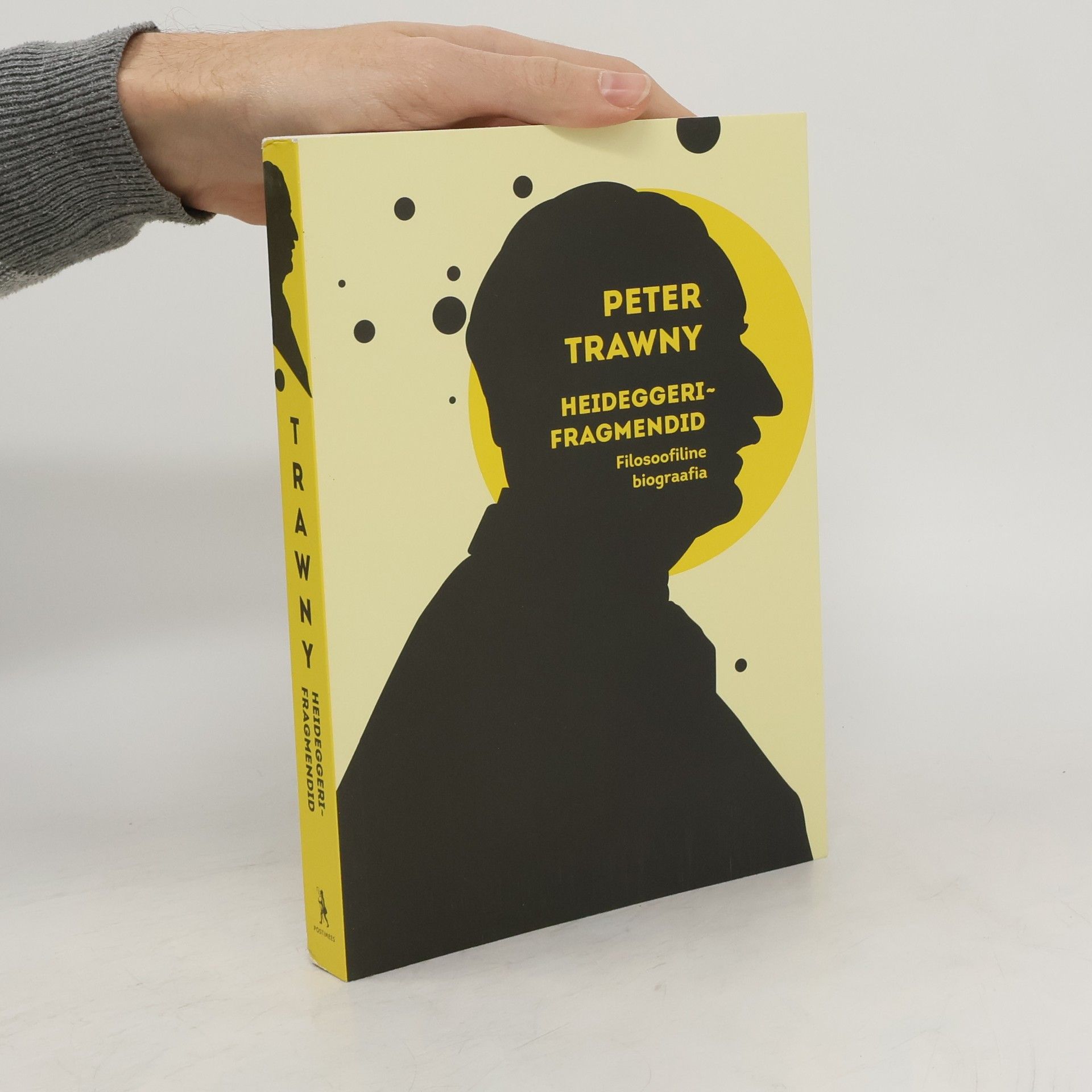Peter Trawny explores Martin Heidegger's controversial Black Notebooks, revealing how they reflect his personal Nazism as integral to his philosophy. This study examines Heidegger's concept of freedom, truth, and ethics, arguing that his decision to publish these notebooks was an expression of his philosophical beliefs, despite their troubling content.
Peter Trawny Libri







Krize pravdy
- 176pagine
- 7 ore di lettura
Jak vážná je současná krize pravdy? Trawnyho stejnojmenná kniha nepřizvukuje hlasům varujícím před alternativními pravdami, nepanikaří a nemoralizuje, nýbrž věcně analyzuje, jak se to s pravdou má. S oporou hlavních postav filosofické tradice (Sókratés, Kant, Nietzsche, Arendtová) ukazuje, že to s pravdou dnes není o nic horší než v minulosti: pravda byla problémem vždy, lidé se o ni přeli a vždy také měla své svědky a mučedníky. Pravda je v krizi vlastně neustále, protože krize patří k její bytnosti: pravda sama je krizí, a to ve smyslu původního řeckého výrazu — v krizi se tříbí názory a vyjevuje se silnější argument, a s ním i pravda sama. Tím nám autor poskytuje mnohem lepší vodítko pro orientaci v aktuální debatě než soudobá klišé – přijetí pravdy jako krize umožňuje dát pravdě ve veřejném prostoru znovu přiměřený smysl.
Im Fokus der Untersuchung steht Martin Heidegger als politischer Esoteriker, der sich bewusst von öffentlichen Diskursen abgrenzt. Peter Trawny beleuchtet, wie das Unzugängliche, symbolisiert durch das »Adyton« im griechischen Tempel, eine zentrale Rolle in Heideggers Denken spielt. Durch die Verbindung von Philosophie und erotischer Erfahrung wird ein intimer Zugang zu Heideggers Werk eröffnet, der die Komplexität und Tiefe seines Philosophierens verdeutlicht.
Hitler, die Philosophie und der Hass
Anmerkungen zum identitätspolitischen Diskurs
- 172pagine
- 7 ore di lettura
Zu glauben, der europäische Diskurs könne den Nationalsozialismus wie ein Objekt auf Distanz halten, ist im besten Fall eine naive Hypothese, im schlimmsten Fall aber ein politischer Fehler. Man tut dann so, als hätte der Nationalsozialismus mit dem Rest von Europa, mit den anderen Philosophen, mit anderen politischen und religiösen Sprachen keinen Kontakt gehabt, betont Jacques Derrida in einem Gespräch mit Didier Eribon. Und doch haben Philosophinnen und Philosophen seit dem Zweiten Weltkrieg bis heute die wichtigsten Selbstdarstellungen des Nationalsozialismus ignoriert. Adolf Hitlers »Mein Kampf« gilt noch immer als ein Buch, das einer philosophischen Auseinandersetzung nicht würdig ist. Diese Haltung wirft ein Licht auf die Philosophie selbst. Findet sie in »Mein Kampf« womöglich zu viel von sich selbst? Und was ist es genau, was sie dort findet? Trawnys Lektüre von Hitlers Buch geht der Möglichkeit einer Kontinuität von Philosophie und Nationalsozialismus nicht aus dem Weg. Es ist die Begegnung mit einem Hass, der uns allein schon deshalb bedroht, weil er einmal die Macht ergriffen und das Leben der Gesellschaft beherrscht hat. Es gibt keinen Grund zu meinen, der Hass wäre vergangen.
Eine einzigartige und ungewöhnliche Einführung in Heideggers Denken und darüber hinaus Martin Heidegger ist einer der wichtigsten Philosophen des 20. Jahrhunderts, aber auch einer der umstrittensten. Nachdem die Publikation der »Schwarzen Hefte« seinen Antisemitismus offengelegt hat, schien Heidegger philosophisch erledigt zu sein. Doch so einfach kommen wir von seinem Denken nicht los. Peter Trawny, ausgewiesener Heidegger-Experte, nähert sich in seinem Buch Heideggers Leben und Denken auf ungewöhnliche Weise. In kurzen Fragmenten tritt er in einen Dialog mit diesem Denker, ringt mit ihm, befragt ihn, beleuchtet sein widersprüchliches Leben, weicht keinem Konflikt aus und sondiert, was Heidegger ihm, was Heidegger uns heute noch sagen kann. Ein Buch, das gleichzeitig Literatur und Philosophie ist, das einen in Heideggers Denken, ins Denken überhaupt hineinzieht und an das Wesentliche, den existentiellen Kern der Philosophie rührt.
Ins Wasser geschrieben
- 155pagine
- 6 ore di lettura
Dieser Versuch über Intimität und die Differenz von Innen und Außen ist Echo und Antwort auf die Frage nach dem Ort einer kommenden Revolution, die Trawny in seinem vorangegangenen Essay ›Medium und Revolution‹ aufwarf. Die radikale Besinnung auf das Innen, die mono- oder bipolare Intimität leuchtet als einzige Möglichkeit auf, heute wahrhaftig zu leben.
Der Euro ist weiter instabil, die Ökonomien der Südländer der EU befinden sich am Boden und überall bekommen rechtsextreme Parteien Zulauf. Trotz alledem gilt der eingeschlagene Kurs immer noch als alternativlos. Um dieses Dogma zu überwinden, diskutieren in diesem Band die prononciertesten politischen Philosophen und Ökonomen Europas über die Ursache, den Zustand und die Lösung der Eurokrise. So wirft Varoufakis einen Blick zurück und berichtet anschaulich von seinen Erfahrungen als Finanzminister, wie die Entscheidungen auf höchster Ebene getroffen werden und welche gravierenden Demokratiedefizite die EU prägen, entwirft aber auch einen Reformplan für ein neues Europa. Doch ist eine politische Kehrtwende nach Jahrzehnten siegreichen Neoliberalismus noch einfach so möglich oder hat nicht die Demokratie grundlegenderen Schaden genommen? Der Debattenband versammelt Vorschläge und Einsprüche zur Zukunft Europas und bietet einen Ausgangspunkt für alle, die sich dem falschen Zwang der Alternativlosigkeit nicht ergeben wollen.
Krise der Wahrheit
- 254pagine
- 9 ore di lettura
Was ist wahr, was falsch? Aus philosophischer Sicht erklärt Peter Trawny die gegenwärtige Krise der Wahrheit. Es tobt eine Riesenschlacht um die Wahrheit: Fake News, Alternative Fakten, Verschwörungstheorien, Lügenpresse, Great Reset, Geschichtsklitterung, postfaktisches Zeitalter – die Situation ist unübersichtlich. Gibt es einen gefährlichen Anschlag auf die Wirklichkeit, eine Krise der Wahrheit? Peter Trawny meint: Nein! Was wir heute erleben, ist nichts anderes als das, was Wahrheit von Anfang an ist: eine Krise. Denn was ist eine Krise? Eine Entscheidung auf Leben oder Tod. Und genau das ist die Wahrheit: eine Macht, die unser Leben in vielen Bereichen bestimmt. Folglich durchdenkt Trawny die Rolle der Wahrheit auf den Feldern Medien, Politik, Öffentlichkeit, Kunst, Geschlecht. Denn es geht nicht ohne Wahrheit: Wir sind Wahrheitswesen durch und durch, unser Leben steht und fällt im Licht und im Schatten der Wahrheit. Mit ihr entscheidet sich, was ich denke und wer ich bin.
Liebe ist Sprengstoff, Heil, Unglück, Trost, Ekstase, Fluch, Sicherheit, Gnade, Hass, Wärme, Schönheit, Wahnsinn, Sehnsucht. Vielgestaltig wie sonst nichts, durchdringt sie alle Poren der Welt, überall hinterlässt sie ihre Spuren wie ein ungeschickter Dieb im Dunkel der Nacht. Wer kann sie fassen?Peter Trawny versucht es. Nicht mit einem nüchternen System, sondern in funkelnden Denkbildern. Er befragt die Philosophen, untersucht die Phänomene, spürt der Vielgestaltigkeit nach. Denn Liebe, so zeigt er, kennt viele Formen: Gottesliebe, Nächstenliebe, große Liebe, Weisheitsliebe, romantische Liebe, Hassliebe. Sie ist ein Geschenk, das zum Fluch werden kann, ein Mysterium, das Dasein ermöglicht. Liebe ist Nuance, einzigartig wie Wolken. Dies muss das Philosophieren aufnehmen und sprechen lassen. Literarisch, denkerisch, fragend. Wie dieses Buch.


